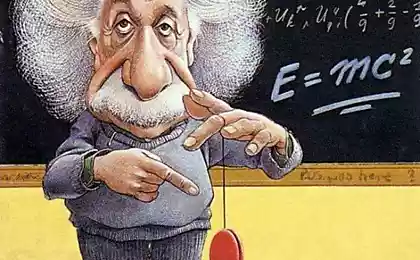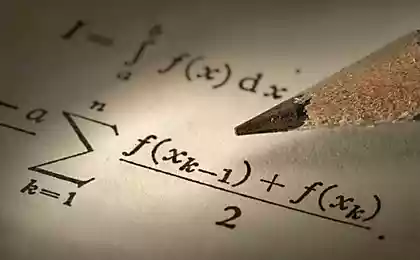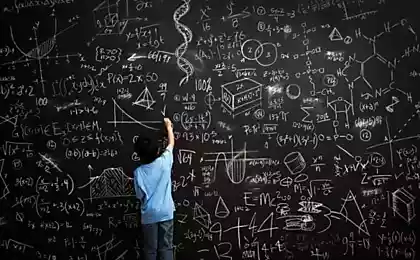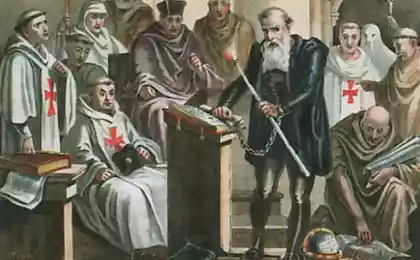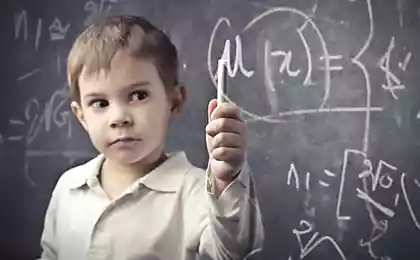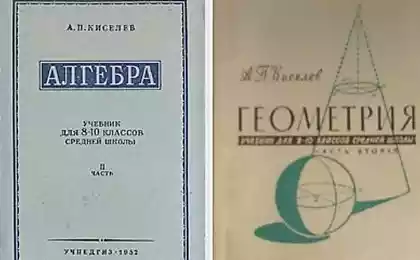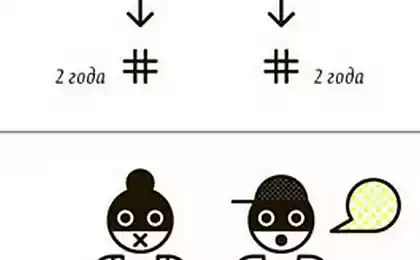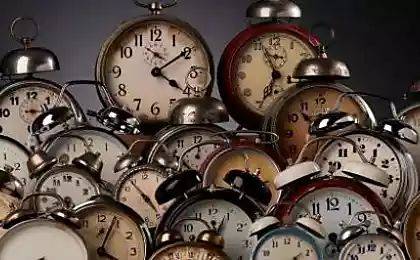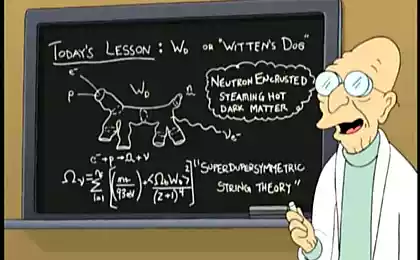694
Paradoxical mathematical puzzles, the solution of which is contrary to common sense
In mathematics there are many examples of situations that may exist in reality, but have no logical explanation, and thus put us at a complete standstill.
The following problems related to the theory of probability, will not let you get bored and will help to test your mental abilities:
1. Problem Monty Collapsetable that you are participating in the show, where the presenter shows you three doors. Behind one door is a prize – a new car, and the two remaining – two goats. You can choose any door and receive the prize that is behind it.
You choose the door and then the host opens one of the other two doors (leading knows where lies the machine, but it always opens that door, behind which is a goat).
Seventy five million nine hundred seventy three thousand eight hundred eighty five
The guide asks you:
– If you want to change your choice?
Or stop at the same door you chose?
Your decision?
So, you decide to leave the old choice.
- After all, there is no difference, change the door or not.
- Since there were only two doors, the chance to guess where the car is 50/50.
- True?
INCORRECTLY!
Fifty four million six hundred ninety four thousand seven hundred ninety nine
Correct answer: you should always change your choice because then the probability to win the car will be twice more.
- The player, whose strategy would be that every time you change the selected door will lose only if he initially picks the door behind which the car is located.
- Since the probability to choose a car on the first attempt is one to three (or 33%) chance not to choose the vehicle if the player will change their choice, is also equal to one to three (or 33%).
- This means that the player who used the strategy to change the door, you win with probability 66%, or two to three.
- This will double the chances of winning of a player whose strategy is each time not to change your choice.
Seventy eight million seven hundred thirty four thousand one hundred seventy
If you leave your initial choice, you win one of the three times; if I have a choice – guess two out of three times.
You still not sure? Let's do the same thing, only with 50 doors. You pick door No. 1.
Seven million eighty eight thousand two hundred thirty
But we open the rest of the 48 doors to reveal goats. Are you still sure about your choice? Remember that you have 1 chance out of 50 to guess you need the door on the first try. Here is the same principle.
Thirty eight million eight hundred fifty three thousand four hundred sixty eight
Of course, the game implies that you definitely wanted to win the car not the goat.
2. The paradox of days rojdenia.radui you work in an office, employing 23 workers, including you. What is the probability that two employees in the office will match birthdays?
(We do not take into account February 29,)
Your team of 23 employees (you are under no. 14):
Sixteen million nine hundred forty three thousand one hundred forty one
Answer: the Chance that two people in the office have a birthday on the same day, is 50%.
- If the number of people reaches 366 figures, it is statistically guaranteed that at least two people's birthdays coincide, as may likely only 365 birthdays.
- However, if you take into consideration that all birthdays can be equally probable, then for a group of 57 people the probability of such a match would be 99%.
How do we find out?
- Let's go back to 23 colleagues from the office, to understand how this is possible.
- Let us formulate the converse assertion: not two people in the group will match birthdays.
- Find out the probability that at least two people in the office are celebrating their birthday in one day, is very difficult when we directly face it.
- Find out the probability that no one in the group not the same birthdays, a lot easier.
Sixty four million forty seven thousand four hundred sixty two
The probability that three people have different birthdays is:
Forty five million three hundred fifty one thousand six hundred thirty three
The probability that four people are not the same birthdays, that is:
One million sixty thousand three hundred eight
See where we come? The probability that 23 people's birthdays do not match, is:
Thirty one million one hundred twenty thousand three hundred thirty eight
As the chance that no one born in one day, is 49.3%, the chance that at least two people have birthdays the same, equal to 50.7%.
Here is the curve of probability:
Eighty one million six hundred thirty thousand six hundred thirty two
Vertical: the probability pairs; horizontal: number of people
3. Your friends are much more popular than you or the "paradox of friendship"For example, in terms of social networks, people with whom the user is following and those who follow him, have more followers than himself.
- This phenomenon is based on the idea that most people have fewer friends than their friends.
- In 1991, the sociologist Scott feld made a surprising discovery. He found that 74% of people are less friends than their friends have on average.
Chart of the friendly relations:
Eighty five million eight hundred eleven thousand seven hundred forty six
In this century, the average employee has 2,85 friends. However, the average number of friends friends friends this man is 3,39.
These people were those who have average number of friends, as shown above. Consequently, they are the most popular members of the team. But the most important is that 17 out of 20 people in the office are friends, at least one of these people:
Sixty nine million seven hundred six thousand two hundred fifteen
This is just an example, but in real life he also finds the confirmation.
- In the Twitter users you follow, more likely to have a greater number of subscribers than you do. The same situation with friends in Facebook or Vkontakte.
- In fact, you have more chances to be friends with someone who is the owner of a large number of friends, rather than with someone who is friends with a small number of people.
- This paradox also applies to sexual relationships.
- If one average person is in a sexual relationship with four other people and one "promiscuous" partner, his sexual partners will on average have more sexual partners than they actually are, because those who practice promiscuity.
Three prisoners, A, b and C sit in solitary confinement and sentenced to death. The Governor randomly selects one of them and has mercy on him. The guard guarding the prisoners, knows who pardoned, but has no right to say that.
- Being the brave prisoner A asks the guard to call his name (or With) a prisoner who will be executed.
- Enclosed And offers: "If pardoned, tell me what will be executed If pardoned, tell me that the executed will. If I am pardoned I toss a coin and call it any name".
- The guard meets prisoner And that the prisoner will be executed V.
- Prisoner And excited, because now the probability of survival is 1 / 2, and not 1 / 3 as one of the prisoners, A or C will be pardoned.
- Prisoner A secretly tells the prisoner, will be executed. Prisoner C also excited, because he still believes that the survival probability of prisoner A is 1 / 3, the probability of survival increased to 2 / 3.
Answer: Rights of a prisoner S.
1) Initially, all three inmates have one chance in three to be pardoned. The guard said that the prisoner will be executed, and this means that events will unfold in one of two scenarios:
– To be pardoned (1 chance in 3)
– Will be pardoned and the coin showed "In" (1 chance out of 6)
2) This means that the chances that a prisoner will be pardoned And were half chances that we will be pardoned. A prisoner To no chance to be pardoned.
3) so, the probability to be pardoned And remains ongoing – 1/3, while the probability to be pardoned increases to 2/3.
If you still doubt, take a look at the full list of odds of each prisoner:
Sixty six million five hundred forty one thousand six hundred six
And if you look at an example where the guard tells the prisoner To be executed, we will see that the prisoner has twice more chances to be pardoned, than the prisoner And:
Twenty million four hundred eighty thousand seven hundred nine
So how do we know that has 0% chances to be pardoned, and that is two times more likely to be pardoned than A, then:
The guard reports that will be executed
Thirty nine million two hundred ninety four thousand five hundred sixty four
5. Perfect parallelogram of quadrilateral four-sided polygon mnogopoliarnosti.
It can be any size, irregular shape, concave, convex, etc. as long as it had four corners and straight sides.
Eighty five million one hundred fifty four thousand seven hundred ninety seven
Mark the middle point on each side of the polygon.
Connect the center point between them. Every time you have to get a perfect parallelogram.
Ninety two million five hundred thirty nine thousand one hundred fifteen
source: mixstuff.ru
Source: /users/1077
10 movies about artificial intelligence, which is to look at each
Knitted glass sculptures by Carol Milne
